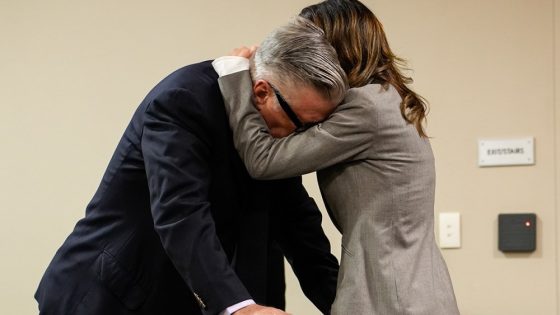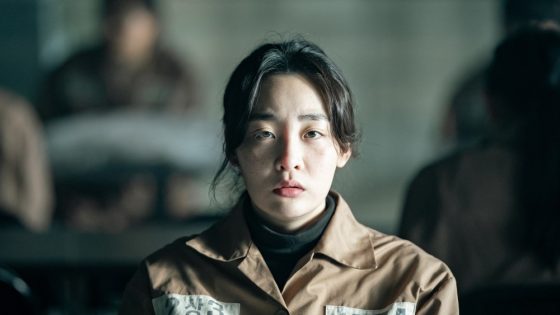SANTA FE, N.M. — Alec Baldwin‘s manslaughter case has been dismissed, after the judge blasted prosecutors for failing to turn over a batch of bullets to the defense.
Judge Mary Marlowe Sommer threw out the case, ruling that no other sanction was sufficient.
“The state is highly culpable for its failure to provide discovery to the defendant,” Marlowe Sommer said. “Dismissal with prejudice is warranted.”
Gasps were heard the courtroom, as Baldwin received hugs and congratulations from his family and supporters. He and his wife, Hilaria, exited the courthouse and entered a black GMC Suburban. They did not address the throngs of media outside.
“This was a disaster for the New Mexico judicial system,” said John Day, a lawyer and local legal commentator. “They got a huge allocation of public funds to prosecute this case. And this is what happened with that. This was an absolute catastrophe.”
The defense argued that prosecutors deliberately hid bullets that were turned over to investigators in March, and which are relevant to the case. Erlinda Johnson, one of two special prosecutors, resigned from the case on Friday amid turmoil over the evidence.
Kari Morrissey, the lead prosecutor, said outside court that she disagrees with the judge but respects the court’s decision.
“I’m disappointed because I believe that I believe that the importance of the evidence was misconstrued by the defense attorneys,” Morrissey said. “We did everything humanly possible to bring justice to Halyna and to her family and we’re proud of the work that we did.”
Baldwin was on trial for shooting cinematographer Halyna Hutchins on the set of “Rust” in 2021. The jury was scheduled to hear testimony on Friday from the lead detective. But the judge sent the jury home on Friday morning so she could delve more deeply into the failure to turn over the bullets.
In an afternoon hearing, Marlowe Sommer pointedly asked Cpl. Alexandria Hancock about why the bullets were logged under a separate case number, putting them out of reach of the defense.
“Why was that determination made?” Marlowe Sommer asked. “Who made it?”
Hancock answered that she had made the decision in consultation with her supervisors and with Morrissey.
In a highly unusual move, Morrissey then called herself to the witness stand to give her account of the events. She said she did not believe the bullets had evidentiary value.
In a further bizarre twist, defense attorney Alex Spiro then cross-examined Morrissey, asking about repeated failures to turn over evidence leading up to the trial. He also asked if Morrissey was acting out of contempt for Baldwin.
“That is absolutely untrue,” Morrissey said. “I actually really appreciate Mr. Baldwin’s movies… I really appreciate his politics.”
The Baldwin trial began on Wednesday. In recent weeks, the defense repeatedly charged that the prosecution had hid reams of information — including forensic reports, emails, and lapel videos — until the eve of trial.
On Friday morning, Marlowe Sommer donned blue rubber gloves and opened an evidence envelope containing the bullets. She had them displayed on a table in front of the judge’s bench. Three of them appeared to match the Starline Brass live bullets found on the set of “Rust.”
During testimony on Thursday, the defense uncovered that investigators had received the batch of live ammunition from Troy Teske toward the end of the trial of Hannah Gutierrez Reed, the film’s armorer. Teske, a retired police officer in Arizona, informed the Santa Fe County Sheriff’s Office that the bullets would match the fatal round.
The investigators wrote a report and logged the evidence, but filed it under a separate case number from the “Rust” material.
“They buried it,” Spiro said.
In court on Friday, Morrissey called the issue a “wild goose chase,” and argued that investigators had decided years earlier that Teske’s rounds were not a match and thus had no evidentiary value. Morrissey argued that even if they were a match, that would only support the prosecution’s theory of the case, and would have no impact on Baldwin’s guilt or innocence.
Marlowe Sommer ruled that under the principle of double jeopardy, Baldwin cannot be retried. She made clear she was appalled at the prosecution’s failures.
“If this conduct does not rise to the level of bad faith, it comes so close to the level of bad faith to show signs of scorching,” the judge said.
Source Agencies


